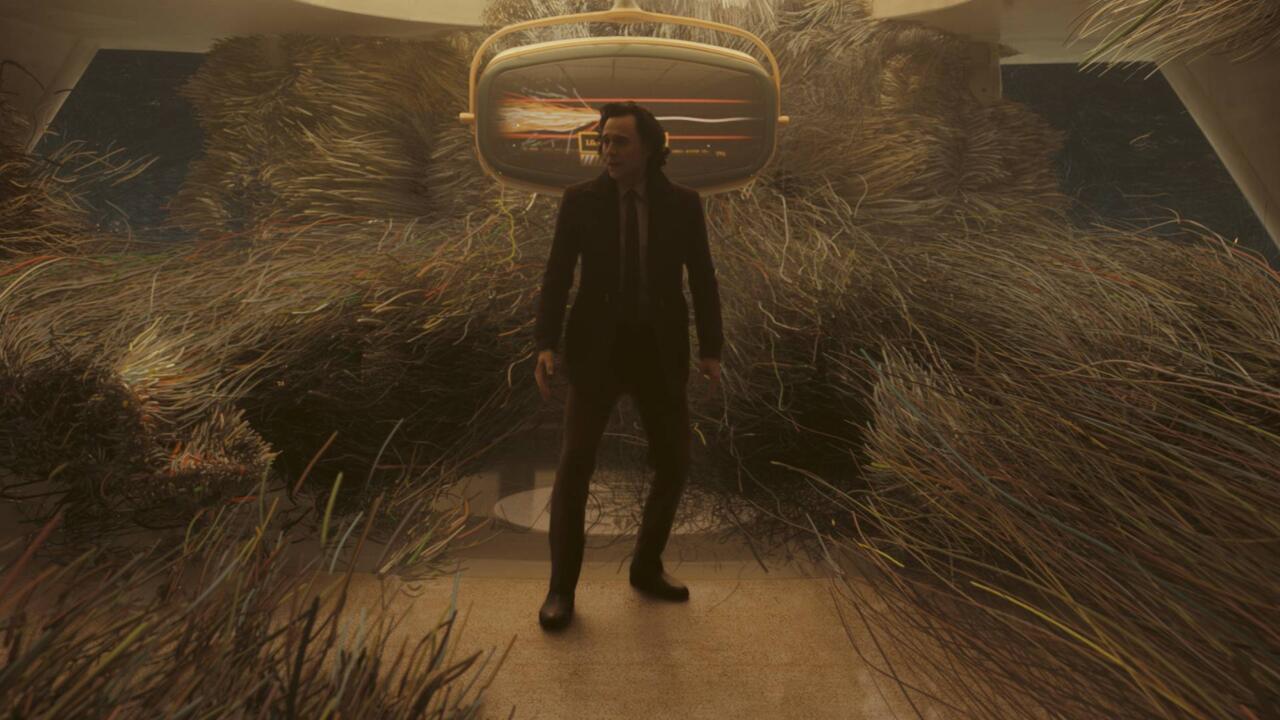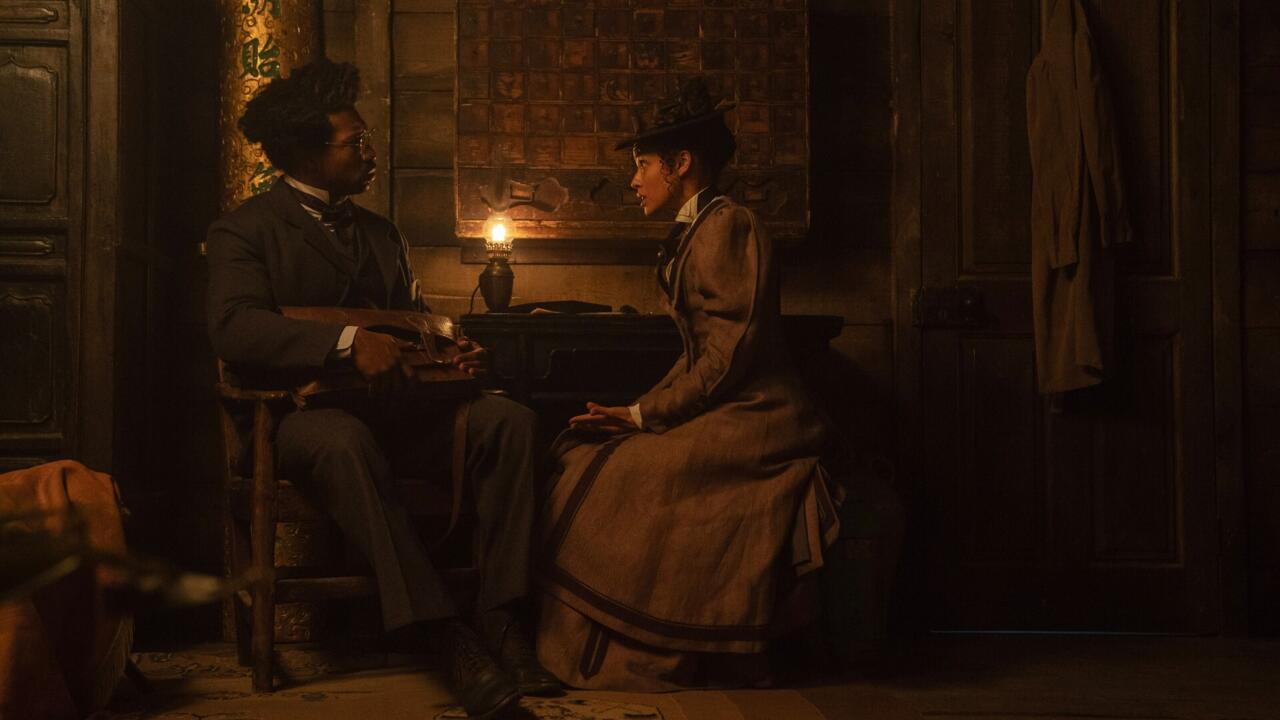
The Marvel Cinematic Universe: Torn Apart, A Consequence of Marvel's Own Making

The Marvel Cinematic Universe faces criticism as recent projects like The Marvels and Loki Season 2 seem to have suffered from post-production alterations, leaving fans questioning the integrity of their storytelling
Marvel's Multiverse Saga has been plagued with ongoing challenges. The Marvel Cinematic Universe, a powerhouse in the entertainment industry, has struggled to maintain stability following Avengers: Endgame. Constant reshuffling of release schedules has led to extensive rewrites, reshoots, and re-edits of their movies and shows, all in an effort to adapt to the ever-changing circumstances.
Unfortunately, it appears that this pattern will persist. The Marvels, a highly anticipated film serving as a key title for the franchise, is not performing well at the box office. Complicating matters further is the Jonathan Majors situation, which shows no signs of resolving itself. As a result, the director originally slated for the next Avengers movie is no longer attached to the project. With this ongoing state of flux, it seems likely that the Marvel Cinematic Universe will continue to operate with disjointed stories lacking a cohesive overarching narrative.
However, if The Marvels continues on its current trajectory, it is likely to be just the beginning of a string of disappointments for the MCU.
Throughout the first decade of this monumental film franchise, fans were conditioned to watch in a particular manner. While the various sub-franchises didn't always incorporate major character crossovers, they would often include subtle references to ongoing events in other series. For instance, Doctor Strange made a nod to War Machine's injury from Captain America: Civil War. These nods rewarded dedicated fans by offering a comprehensive understanding of the entire franchise and the interconnections between each individual series. It was evident that this was a truly interconnected universe.
The post-COVID era of the MCU has lacked a cohesive narrative. Despite ample material to draw from, there have only been glimpses of significant storylines, such as Julia Louis-Dreyfuss assembling a group of former Avengers across multiple films and shows. However, the abundance of content has resulted in limited connectivity.
This is problematic because it was clearly not intended to be this way. The COVID-19 pandemic caused a major schedule upheaval, resulting in a one-year delay for the entire franchise. However, Spider-Man: No Way Home remained in its December 2021 slot, while the Doctor Strange sequel, originally meant to lead into it, ended up taking place afterwards.
The rearrangement of these movies and others required significant changes, making it difficult to determine exactly what alterations were made. Marvel's approach seems to have focused on making each movie standalone, eliminating any references that no longer fit within the MCU. As a result, the early days of the Multiverse Saga featured unrelated stories, which introduced new narrative threads such as Shang-Chi, Eternals, and Moon Knight. A particular issue with Moon Knight is that it lacks any references to the wider MCU or other Marvel content, relying solely on Marvel's confirmation to establish its connection. In contrast, the Eternals are aware of Thanos' existence.
Unfortunately, many of these stories suffer from the removal of vital connections to the franchise. In the case of Black Widow, the film abruptly transitions from Natasha being surrounded by government vehicles to her being free without any explanation provided. Shang-Chi, although it was likely intended to take place during the Blip, lacks sufficient contextual clues within the finished movie to confirm its place on the timeline, or the current status of characters like Carol Danvers and Bruce Banner, both of whom appear in a mid-credits scene, after the events of Thanos.
WandaVision, with its catchy "Agatha All Along" musical number, initially led audiences to believe that Agatha was the mastermind behind the sitcom world. However, as the series progressed, it became clear that Wanda had actually created this reality on her own, with Agatha entering the scene later. Hence, the notion of Agatha being responsible all along was debunked.
When it comes to The Falcon and the Winter Soldier, its thematic coherence seemed scattered, and the villains lacked a concrete plan, almost as if their underlying motivations had vanished. Throughout 2021, Marvel released various projects that left viewers with a peculiar sense that there should have been something more to them. It was evident that these different threads would eventually intertwine to create a grander narrative tapestry, right?
Looking back now, three years later, it appears that Marvel's control over their projects hasn't improved from before. The latest MCU endeavors, such as Secret Invasion, Loki Season 2, and The Marvels, give off the impression that their plotlines were forcefully extracted from them. The connection between The Marvels and Secret Invasion is apparent, as these stories were clearly meant to flow seamlessly into one another, yet their current sequence lacks cohesion. The Marvels, a fast-paced film, almost manages to distract viewers from its almost non-existent plot, until it reaches an unexpected ending that is completely disconnected from the rest of the movie.
Loki Season 2, on the other hand, was packed with subplots that fizzled out towards the last two episodes. It's evident that more was intended for Ravonna Renslayer, while Sylvie was mostly overlooked throughout the season. Disappointingly, the events of Season 2 had no discernible impact on any other ongoing stories in the Marvel Cinematic Universe. Additionally, Ant-Man & the Wasp: Quantumania, which kicked off in 2023, apparently featured a significant number of Bill Murray scenes that were ultimately excluded from the final version, despite their importance to the plot and backstory. Murray's presence in the released film is minimal.
This last aspect is particularly noteworthy. Marvel isn't lacking in efforts to tell these stories effectively and interconnect them. They invest resources and conduct the necessary filming, but whenever changes occur within the larger franchise, they undermine their own efforts and squander everyone's time. Consequently, the past three years have witnessed the release of shows and movies that, at best, are barely coherent when viewed individually and fail to function cohesively as a collective unit.
The cumulative effect is that there is no sense of connection to a franchise. There is no emotional attachment or investment. Marvel is currently just a brand, similar to its previous state, with various independent franchises that do not collaborate. This is significantly draining, resulting in a subconscious decrease in emotional passion from fans over time, which is evident in the low opening weekend numbers for The Marvels. This drain will persist unless Marvel changes its approach.
It will not be an easy task, especially considering the possibility that the MCU is about to move away from Jonathan Majors, who is currently portraying the main villain of the franchise. This change will require extensive rewrites and reshoots. However, Marvel cannot simply continue stripping everything down to its core elements. They need to invest significant effort into rebuilding the MCU as a cohesive entity. It will undoubtedly be costly, but Disney has the financial means to support it.
Editor's P/S
As an enthusiastic fan of the Marvel Cinematic Universe, I am deeply concerned about the recent criticisms and challenges facing the franchise. The post-COVID era of the MCU has been marked by a lack of cohesive narrative and disjointed storytelling, which is a significant departure from the interconnectedness that characterized the earlier phases. The constant reshuffling of release schedules, extensive rewrites, reshoots, and re-edits have left fans questioning the integrity of the storytelling and the overall direction of the franchise.
The Marvels, a highly anticipated film that was supposed to be a key title for the Multiverse Saga, has failed to perform well at the box office, further adding to the uncertainty surrounding the MCU's future. The ongoing Jonathan Majors situation and the departure of the director originally slated for the next Avengers movie are also indicative of the instability and lack of clear direction within the franchise. This state of flux raises concerns about the ability of the MCU to deliver cohesive and compelling stories moving forward.









